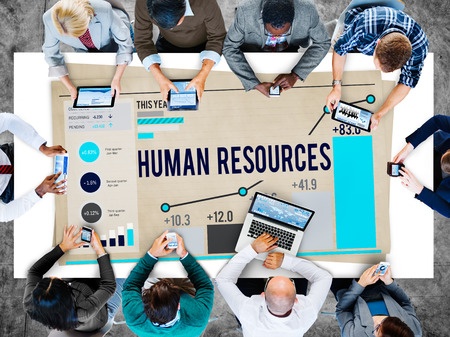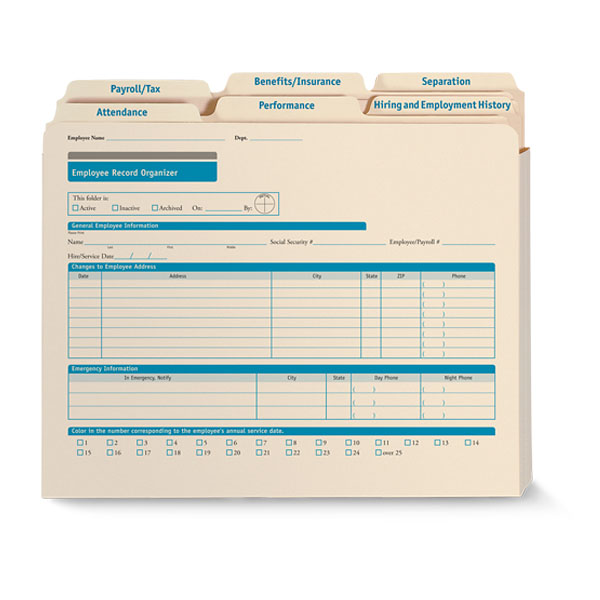Managing HR documents across paper files, shared drives, and outdated systems creates daily friction for HR teams. Slow onboarding, misplaced employee onboarding records, inconsistent training documentation, and growing HR compliance risks all stem from disorganized information. These challenges only intensify as organizations scale.
Digitizing HR Records: How to Streamline Onboarding, Training, and Compliance
Topics: HR
If your organization is looking to improve your HR department processes automation is the best way to streamline workflows and improve efficiencies. Automation ensures your department becomes better at hiring and retaining quality talent while also easily managing sensitive/personal information and requests without missing a beat. Automation not only streamlines and simplifies HR processes, but it also reduces errors.
Topics: HR, automation
HR automated solutions are a powerful way to keep your records safe, ensure legal compliance and limit access by unauthorized people. With the right solutions, your company can be more streamlined, save space and be secure against both damage and thefts. Plus, automation takes the element of human error out of the equation.
Topics: HR
Streamlining the Hiring Process With Document Management
Without your employees, your company simply cannot move forward. Occasionally, you will need new employees to fill voids and help your company grow. For this, you should be using document management to make the hiring and onboarding steps more efficient. Here is how doing so will help your hiring process:
Topics: HR, Document Management and ECM
Improve the Resume Screening Process With Digitization
It isn't easy to find the perfect candidate to fill a position. You will be inundated with hundreds of resumes. There are usually a few good candidates, but you still have to filter through all of them just to figure out who even qualifies for the position. You can significantly enhance your resume screening process by investing in a digitization solution.
Topics: HR, digital, resume screening, uman resources
The Best Practice Guide for Applicant Tracking and Scoring
A large percentage of an HR professional’s time is devoted to the process of talent recruitment and acquisition. When all is said and done, a new hire can be quite a time consuming endeavor. Poring over resumes, conducting series upon series of interviews, hiring and on-boarding – it can be a lengthy, time intensive process. But, there are some best practices regarding applicant tracking and scoring that can help to expedite the process, while still ensuring you make the right hiring decisions for your business. Here are a few of them.
Topics: HR
Why Managing Traditional Employee Records Costs You Time and Money
While employee records are – from both a legal and operational perspective – necessities of doing business, their management can cost you a lot of time, resources, and money. Ensuring that employee records are up to date is important for a variety of reasons: informing decision making processes; staying on top of performance and salary reviews; even compliance to labour laws and regulations. Because management of employee records is so critical, the format of your records and the efficiency of your management process can have a significant impact on your business. For those using more traditional methods for keeping employee records, it’s likely that your process is costing you both time and money – here’s why.
Topics: HR, Electronic Records
5 Ways Electronic Employee Records Make You Awesome at Your Job
Employee records management plays a central role in every business. Apart from the legal recordkeeping obligations that employers have, employee records are valuable resources that help guide and improve important decision processes, from hiring to compensation, performance reviews and beyond.
Topics: HR
How Human Resources Compliance Checklists Can Keep You Out of Trouble
Human Resources compliancechecklists are instrumental in ensuring that organizations stay well within the laws governing employment in Canada.
They help not only prepare for audits, but also provide a means to monitor whether business processes are operating efficiently and resources are not being wasted or used ineffectively.
Ultimately, HR compliance checklists are an integral component of more comprehensive HR management systems that serve the dual purpose of boosting business efficiencies and staying compliant.
Below are a few of the ways that Human Resources compliance checklists can help keep your organization out of trouble – both legally and operationally.
Topics: HR, human resources
8 Facts About Retaining Employee Records That'll Keep You Up at Night
Employee records management is an important aspect for any organization, regardless of industry or size. Since people are the most important element to the success of a business, effective management is criticaal – and the purpose of creating and retaining employee documentation is to improve the management of employees.
Essentially, employee records provide a single source where data about each employee is stored, and this information is used to help guide HR decision processes to the benefit of the organization, such as hiring, promotions, compensation and even termination.
Topics: HR


.jpg)







